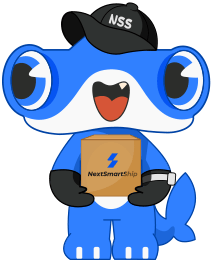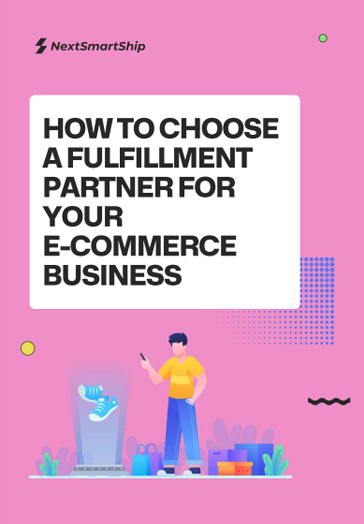Amazon is the world’s largest eCommerce store. Since it started in 1995, the company has grown to become a market leader in online retail. Since there are few companies as extensive or pervasive in daily life as Amazon, selling through its platform will undoubtedly confer several benefits. However, as you will learn in this post, there are disadvantages as well. So, it’s best to carefully weigh your options before committing to the platform.

The Pros
Amazon gives you instant credibility
Consumers may feel uneasy about buying products from small businesses they have never dealt with. Amazon processes payments and distributes money to its vendors, so customers have more confidence that they won’t lose their money. The credibility Amazon confers onto its vendors is a valuable asset. It allows brands to enter the consumer market with limited difficulty.
Amazon has an enormous customer base.
There are over 300 million active buyer accounts on Amazon. It is all but impossible small enterprise can acquire a customer base that large right now. Even if that business has a robust global presence, they would be fortunate to have just 1% of Amazon’s customers, and that’s why so many third-party vendors use its platform. The arrangement is mutually beneficial, of course. Amazon gets to grow more prominent, and it earns commissions. You, the vendor, get to utilize its large market share.
Customer concerns are dealt with internally.
You needn’t worry about unreasonable customers calling you at odd hours when something goes wrong. Amazon will handle any customer complaints that arise concerning your product, process any rejected items, and manage the order fulfillment process. This system simplifies international shipping.
Note: Although Amazon answers customers’ calls, you’ll still have to take responsibility for your product. If customers have issues, you’ll have to resolve them quickly because the quality of their experience is incredibly important. They could give you negative reviews, and that will hurt your business. So, you’ll want to work with them and do whatever is necessary to keep them contented.
Amazon has an extensive infrastructure.
Amazon has built numerous business support structures into their platform. This includes features like tax collection, Fulfillment by Merchant (FBM), and Fulfillment by Amazon (FBA).
The nature of online transactions makes tax compliance challenging since each state in the U.S has unique tax laws. Amazon takes care of all these issues for sellers on its platform, so it is a convenient place for them to set up shop.
Amazon FBA, where the company handles order fulfillment for vendors who aren’t on its platform, is a lucrative fulfillment solution for startups and medium sized brands.
FBM leaves the order fulfillment process to you, the merchant, but it grants you more control over your customers and allows you to sell large, heavy items. It is ideal for vendors with pre-established logistics networks.
Amazon has an in-built referral system.
Amazon has gathered vast amounts of data on its members based on viewing preferences, purchase history, and reviews. This information is used to generate referrals for customers when they log in to the website. It is an opportunity for your products to appear even when customers aren’t looking for them. As your products grow popular, they will appear on customers’ home screens and feature within product lists. This will get you more sales.
Minimal technical issues
Amazon’s uptimes are some of the best in the industry. No matter which region or country you’re in, their site is always accessible and functional, so you needn’t worry over technical issues affecting your sales and profitability. Furthermore, unlike proprietary eCommerce websites, you don’t have to pay extra for the increased uptime.
Advertising
You’ll benefit from Amazon’s affiliate program. Amazon affiliates will link to your products from their personal websites. This means you’ll get all the benefits of running an affiliate program with none of the work. You’ll still have to pay commission to the affiliate, but you won’t have to deal with the challenges handling customer service problems and payments.
The Cons
You may become Amazon’s market finder.
Amazon’s primary goal is to have the widest variety of commodities on its store, and the company doesn’t mind having its third-party vendors stock and ship low priority items. However, if your products grow popular, it will prove to Amazon that there’s lucrative demand within your niche. If your item has no patent, Amazon will likely copy your design and mass-produce it at a lower price, effectively pushing you out of business.
You’ll have limited control over product reviews
Though amazon’s community regulates its reviews, some customers will evaluate purchases based on personal feelings and perceptions. If shipping delays by a day, it’s beyond your control, but you’ll likely get just a star or two in a review. Negative reviews from verified customers will ultimately impact your sales, and there’s no way to control them.
Its expensive
Selling on Amazon is not cheap. It costs about 500USD each year for a vendor license, and even after you get it, you’ll have to pay transactional charges for each purchase.
Amazon pays up to 7% of an item’s cost to affiliate partners who successfully generate sales. However, vendors whose products are sold through affiliate links may pay as much as 15% of the sale in fees. Consequently, to make any decent profit on the platform, your margins must be 40% or more. This limits the kinds of products you can sell through the platform.
Competition
If you are reselling items from a manufacturer, someone on the platform likely has those products listed. Even when you’re selling used items, there will be rivals with similar product offerings. Since the competition is so fierce, and there is limited brand awareness, it can be challenging to launch a successful business. All you get is a name, a price listing, and a shipping cost estimate. Without competitive prices and shipping options, this information may not convince customers to buy your products.
You have limited control over other vendors’ behavior
Businesses operating in physical spaces are often advised to set competitive prices, so consumers base their preferences on product quality. However, the opposite holds true for digital market places. Cost is often the conclusive factor since vendors prefer to undercut prices just to make sales. The challenge with this is that it leads to price wars in which every vendor is hurt. If other vendors in your turn to these tactics, it will affect your margins.
It is hard to establish personal relationships
66% of all people who buy from amazon each day are repeat customers. When your business is selling through Amazon, you might benefit from the company’s global recognition. However, the downside to this is that you’ll lose the ability to capitalize on customer relationships.
Selling through amazon could be the spark that your company needs to achieve sustainable growth through sales. However, despite access to its large customer base, partnering with amazon means giving up control of your brand. Depending on your product and average margins, it may not be the best choice for your business. If you don’t think selling on amazon will work for you, you can still succeed with a proprietary ecommerce channel and a third-party fulfillment partner. Partnering with Nextsmartship will get you a scalable, convenient eCommerce fulfillment solution guaranteed to grow your business.



